Study the mechanics of the human body and gain expertise in the theory and practice of physical activity across the lifespan. This cross-disciplinary degree encompasses biology, human anatomy, human physiology, psychology, and the application of kinesiology concepts within each discipline.
Drive your own education with courses that inspire and explore careers through internships at healthcare clinics, fitness facilities, college athletic departments, and more. Prepare for a career in strength and conditioning, personal training, or graduate work in physical therapy, occupational therapy, athletic training, chiropractic, or exercise science.
Earn a Master’s in Athletic Training in 5 Years
Interested in advanced education in athletic training? You have the opportunity to earn an undergraduate degree in kinesiology and a master’s degree in athletic training in our Athletic Training 3+2 program, graduating with both degrees in five years.
Explore Internships & Careers
Hands on experience is a unique element of our kinesiology program. During your studies, you will complete at least one internship, research, or practicum experience. Examples include:
- Dubuque Physical Therapy
- University of Iowa Pediatric Cardiac Rehab
- YMCA
- IVCH Center for Physical Rehabilitation and Aquatics
- Movement Fitness & Personal Training
- Velocity Sports Performance
- Burger Chiropractic
- Loras All-Sports Camp
- University of Minnesota Strength & Conditioning
Move on to graduate school or a career in one of these fields:
- Physical Therapist
- Occupational Therapist
- Athletic Trainer
- Chiropractor
- Clinical Exercise Physiologist
- Personal Trainer
- Strength & Conditioning Coach
- Health Education Specialist
Course Highlights
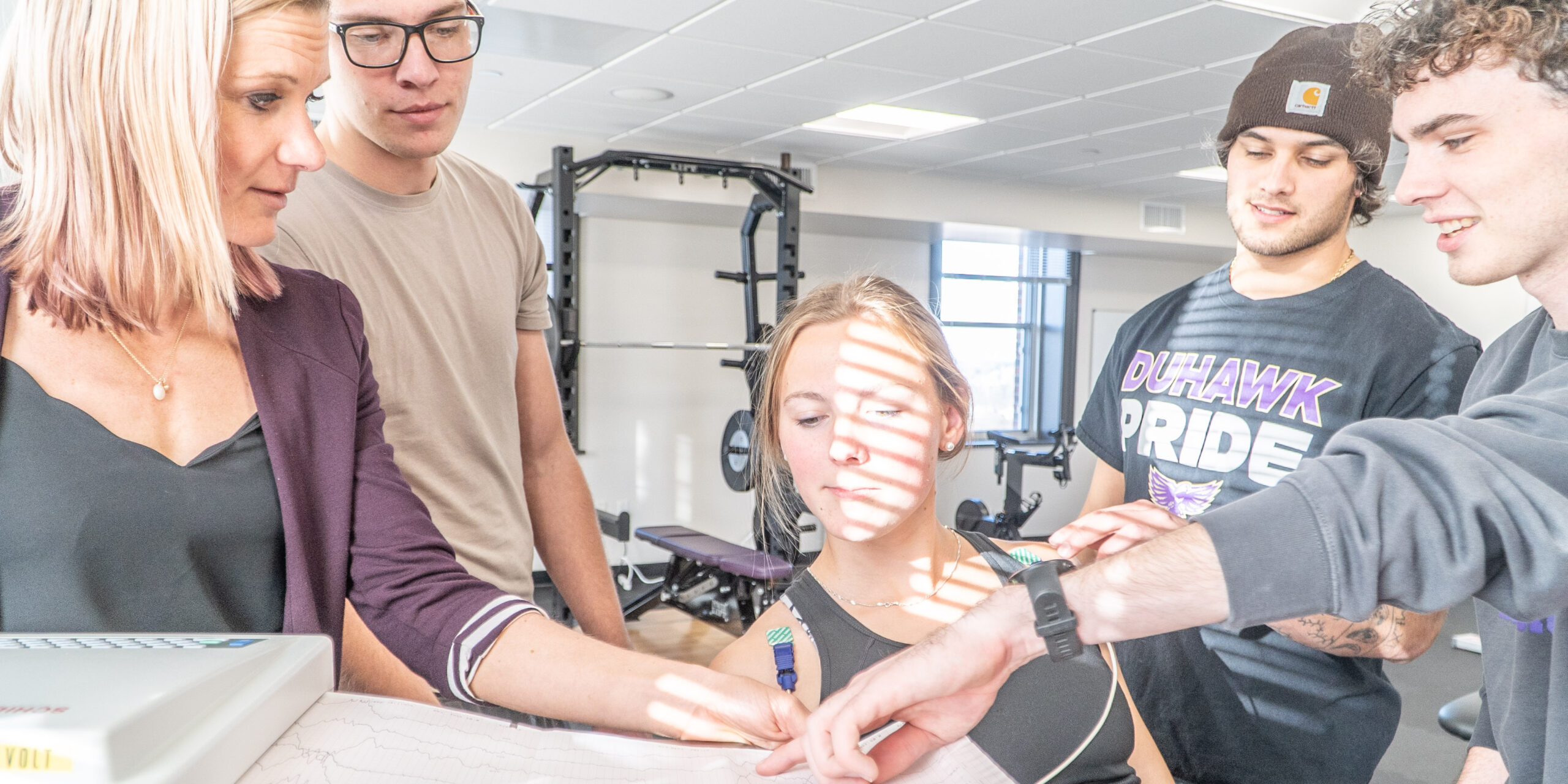
School of Science & Health
Majors & Minors
Graduate Degree Opportunities
Consider continuing your education at Loras through one of our graduate, dual degree, or accelerated programs.
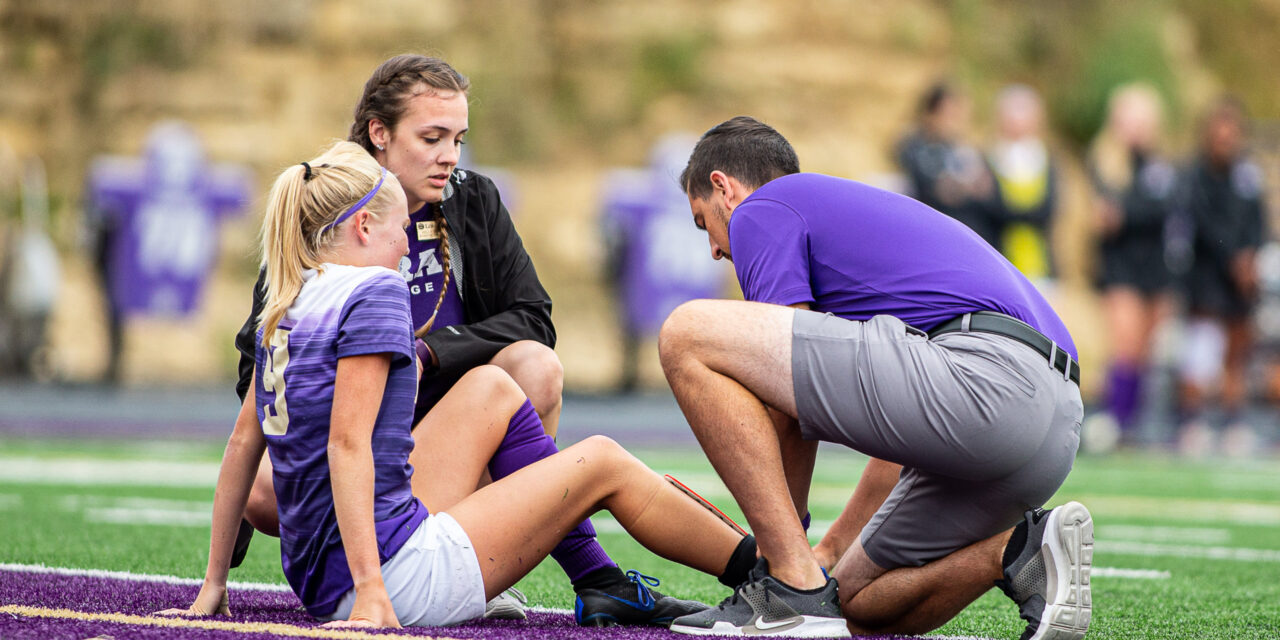
Clubs & Orgs
We have a variety of opportunities for you to get involved from the moment you set foot on campus.
Athletic Training Club
DuHealth
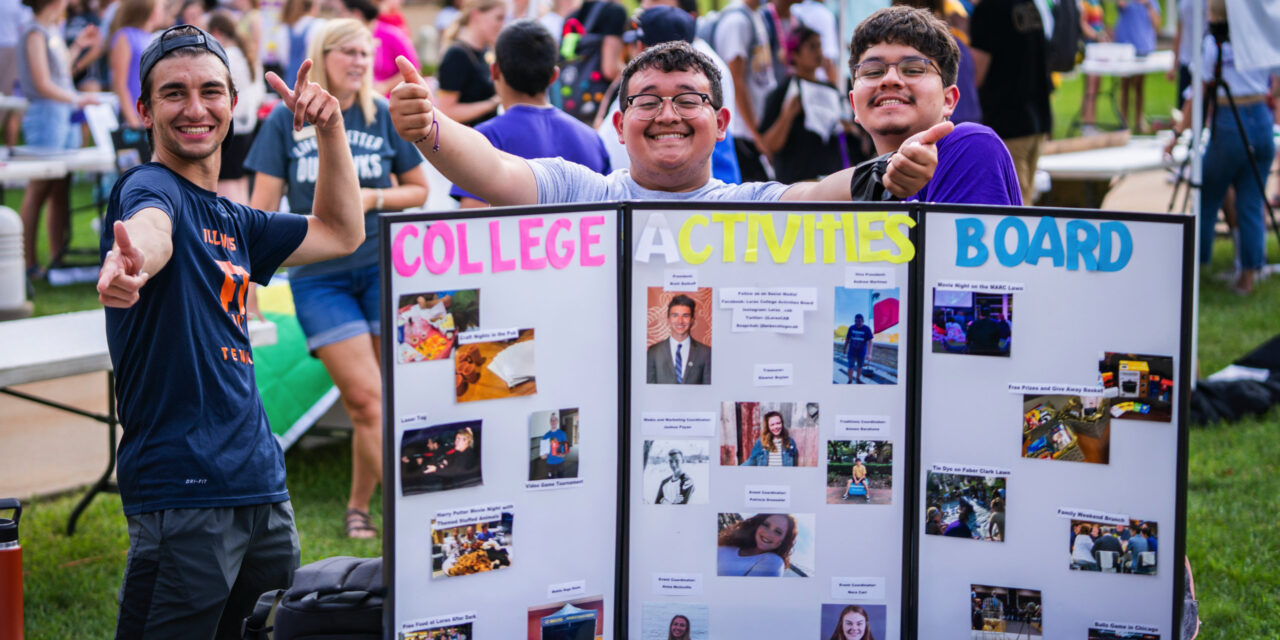
Straight Talk from a Duhawk
Kinesiology professors are the most passionate and fun people you will meet on campus. They make learning fun.
— Brianna (’23)
Meet Your Professors
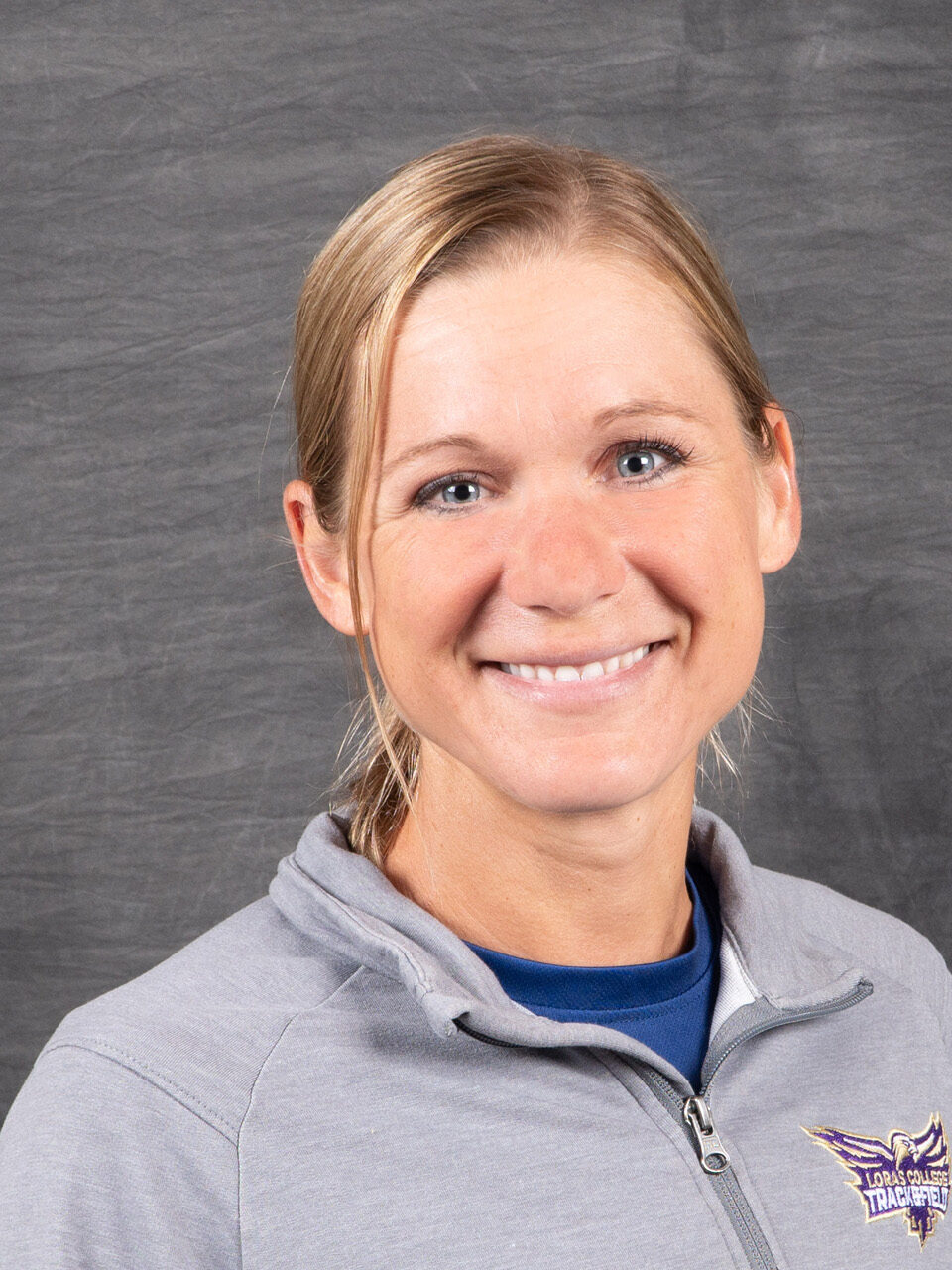
Elaina Biechler PhD
Associate Professor of Kinesiology
Coaching Leadership Program Director

Kate Cooper PhD
Professor of Biology
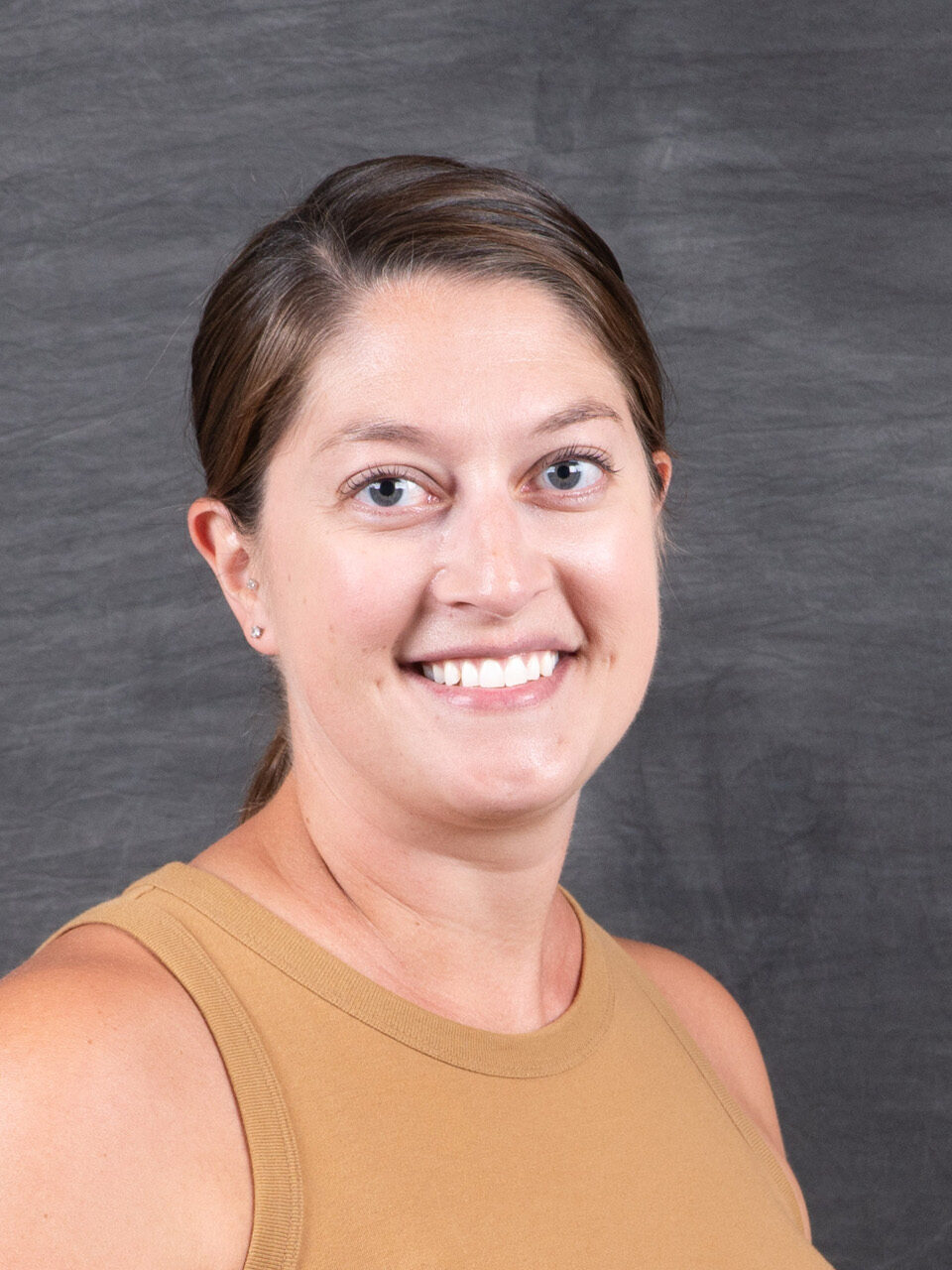
Kathryn DeShaw PhD
Assistant Professor of Kinesiology
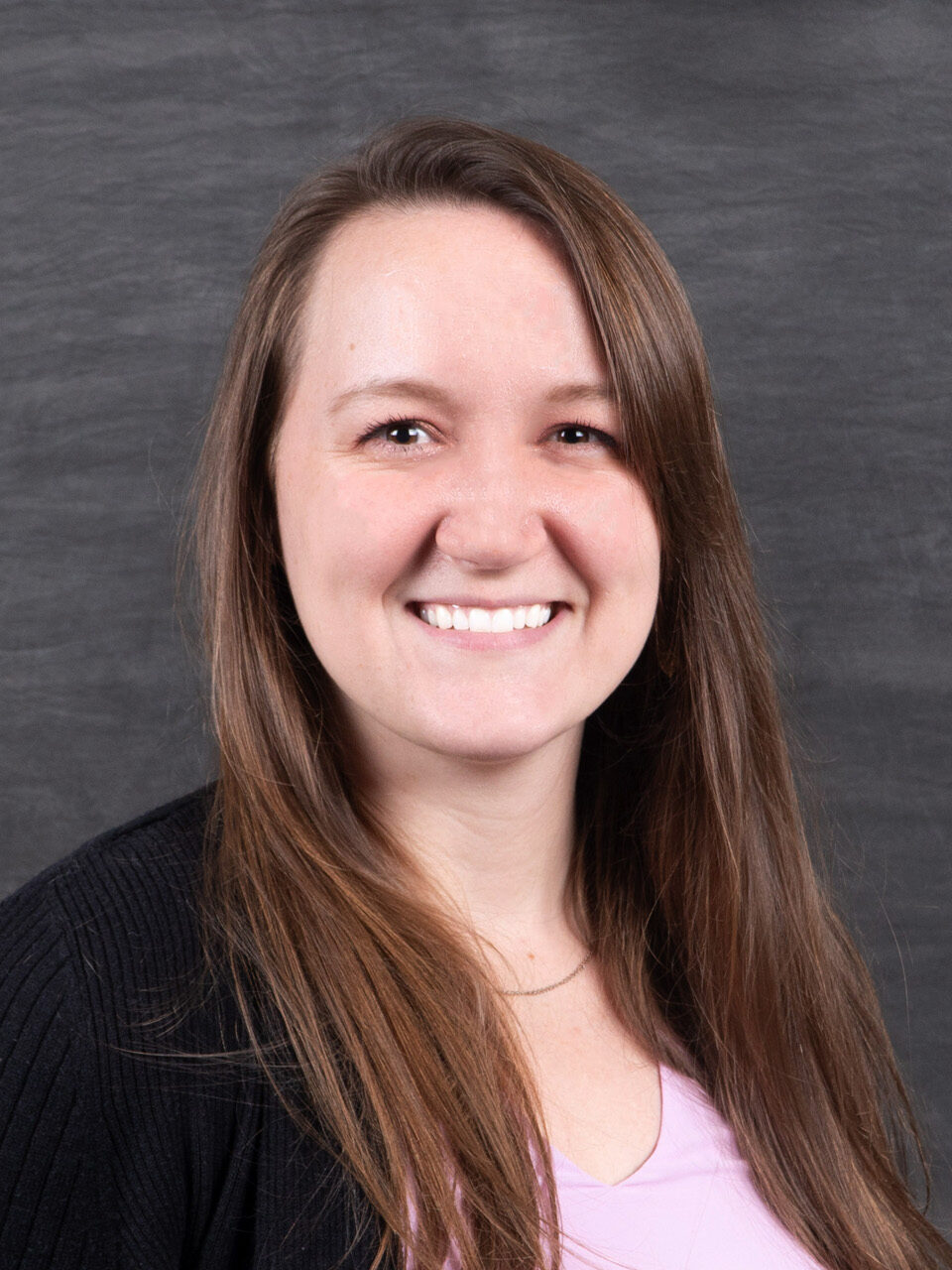
Sharon Feld EdD LAT ATC
Assistant Professor of Athletic Training
Athletic Training Clinical Education Coordinator
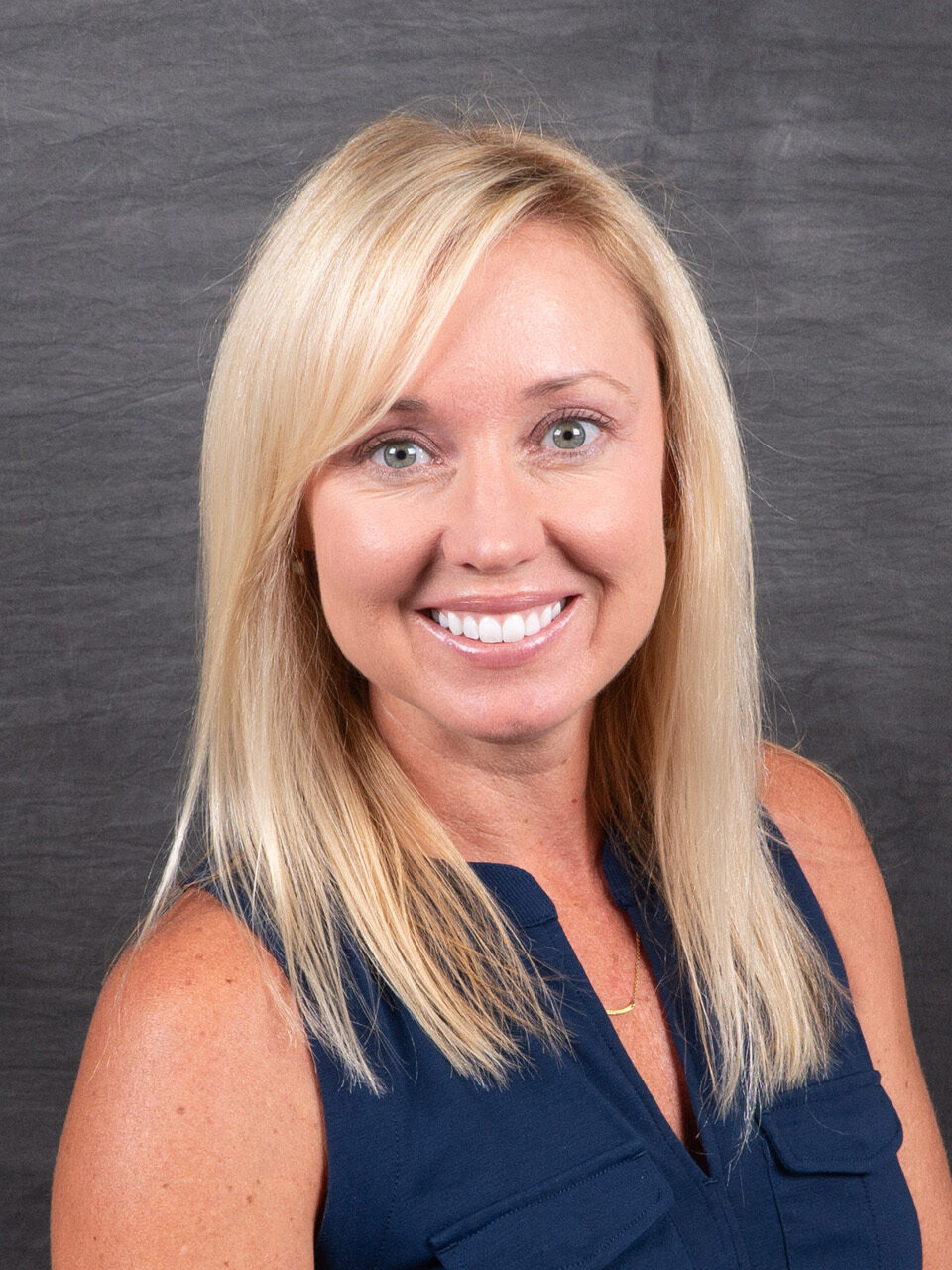
Molly M. McDonald Figgins PhD ATC
Associate Professor of Athletic Training
Athletic Training Program Director
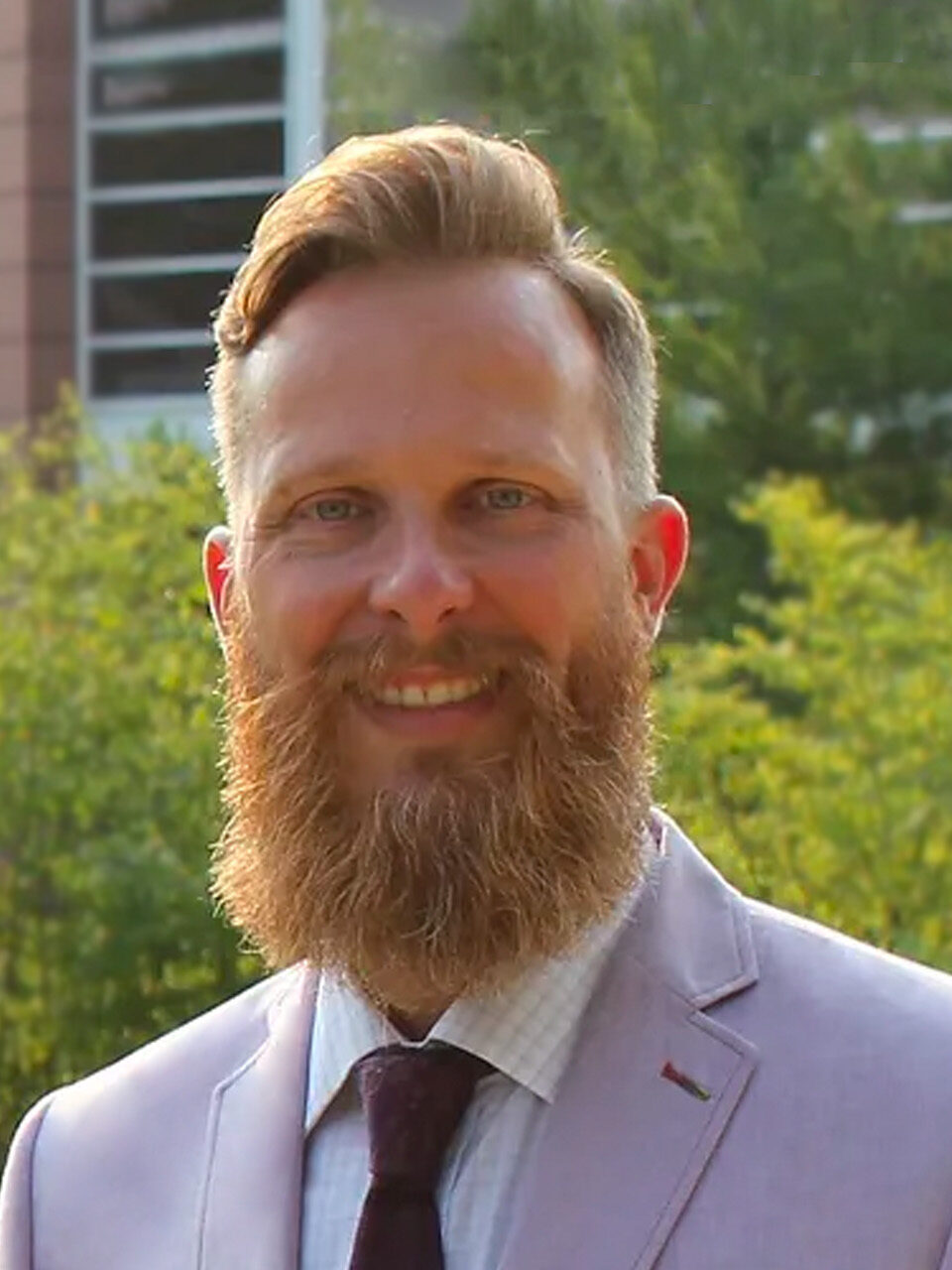
Keith Thraen-Borowski PhD
Associate Professor of Kinesiology
Kinesiology News
-
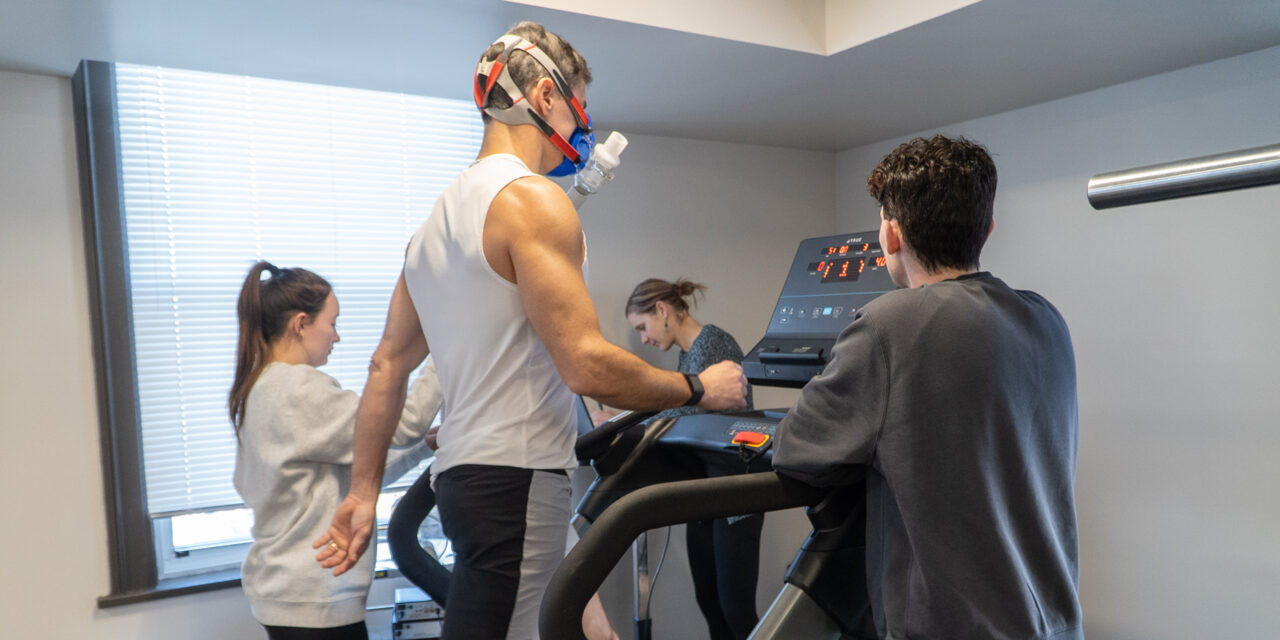
Ultimate Athlete ELITE Study
Loras College is excited to be one of the testing grounds for the ELITE study, aiming to uncover the genetic determinants of human aerobic performance. In collaboration with Stanford University, Dr. Elaina Biechler, associate professor of kinesiology, will contribute to this initiative. On our campus, she’ll be conducting tests on 100 elite athletes, playing a crucial role in the larger 10,000-subject study. More
-
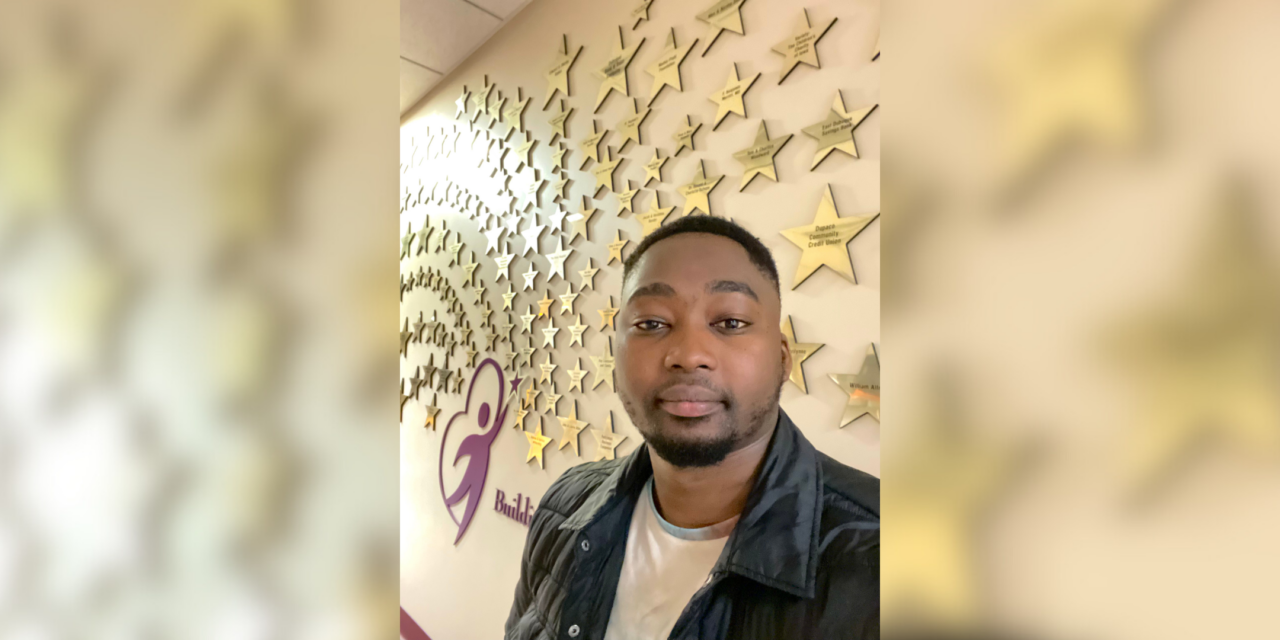
A Healthy Dose of Achievement
As an intern, Steve Marfo (’26) assists clients with daily tasks, monitors their health, and provides emotional support. More
-
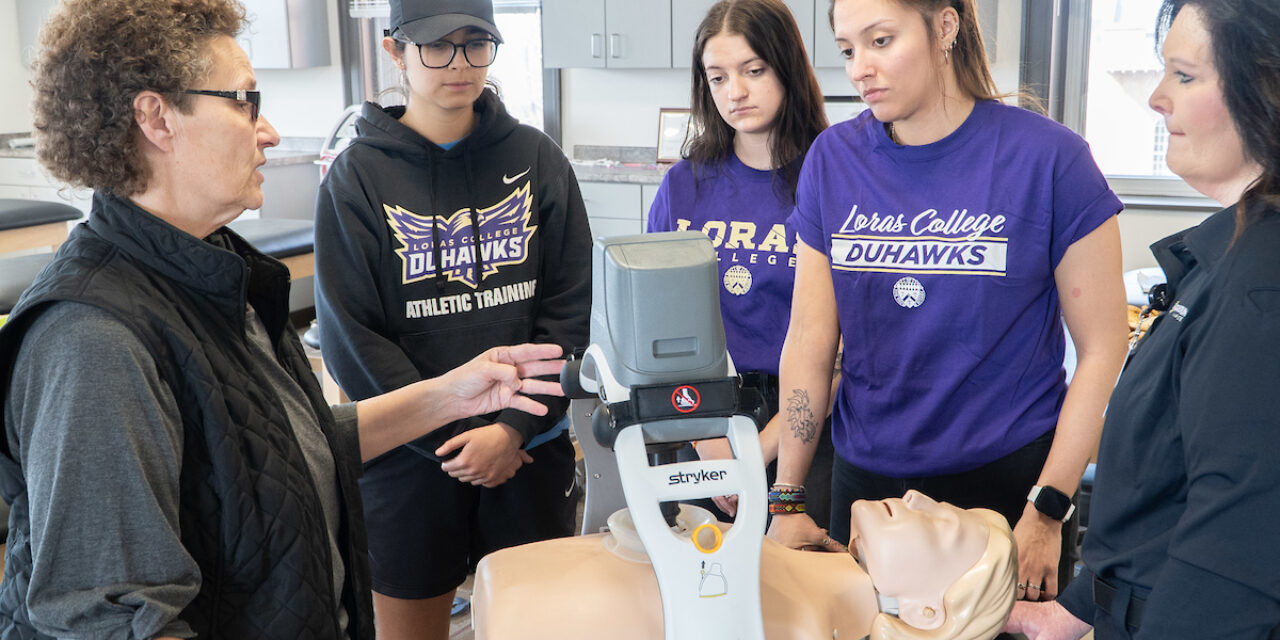
Loras Partners with Paramount for EMS Education
Paramount EMS and Loras College have embarked on a partnership that broadens opportunities for community members interested in and/or seeking a career in Emergency Medical Services. More

